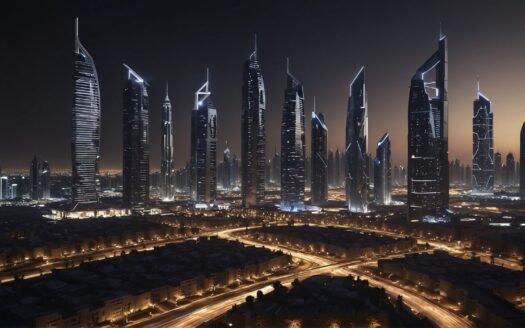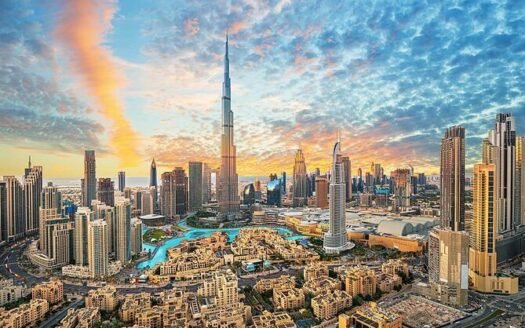South Korea’s Real Estate Market 2024: The Outlook and Key Investment Areas
Being one of the most progressive countries in Asia, the South Korean property market remains in the process of offering various opportunities and threats to investors. The government policies, demographic factors and economic factors in relation to this market in the year 2024 are as follows; This blog will focus on the most important trends in South Korea’s real estate and predict the most attractive investments in the process of its progress for the rest of the year.
1. Population Density and Requirement for Residential Real Estate
Urbanization presents a main driver in South Korea’s real estate market, particularly in major cities such as Seoul, Busan, and Incheon for instance there is a steady demand for residential places. Expansion with population growth and demographic changes has put tremendous pressure on availability and affordability of housing across the world resulting in hikes in prices in many places. Nevertheless, new governmental initiatives that are planned to halt the housing price increase should impact the supply and demand ratio in 2024.
As indicated in a report by IMARC Group, it was estimated that South Korea has more progress to undertake in residential real estate in the years to come because of higher demands in apartments and affordable living in the urban regions. Any investor who wants to take advantage of this trend should target the areas that have high population density because people will still need homes.
2. Shifts in Government Policies
As can be seen from the above analysis, government policies and interference retain centrality in the configuration of real estate in South Korea. In the recent past the Korean government has come up with some measures that seek to address the problem of speculation, the implications of high cost of housing and actually target to bring down the cost of houses. Some of them include; credit crunch by cutting down loan offering and rising the taxes on acquisition of property.
These policies are expected to prevail in the market in 2024 with a focus on regulating housing prices since they have increased significantly in Seoul, where the rates have hit the roof. Through reasonable investments the government has had an emphasis on offering affordable houses to people and this may show vacancies where investors may be contracted to invest in affordable houses projects in exchange for long term returns (Statista).
3. Luxury Real Estate and International Investment
As the problem of affordable housing persists in South Korea, the country’s high-end property sector is still a focus for foreign investors. Luxury residences especially in Seoul’s choicest neighborhoods have continued to soar and grow even with government interventions to check its fast pace. The market is currently being dominated by domestic end users and overseas investors are being active from China, Japan and South East Asia region.
An increasing amount of foreign investors and limited availability of high-end real estate has helped to sustain prices in this sector. Those with interests in the posh category should consider investing in areas like Gangnam and Hannam as there is great potential for high-end units to experience significant (Bamboo Routes). undefined They include factors such as the increasing emphasis on green buildings and smart buildings.
4. Rising Interest in Green and Smart Buildings
There is another trend that has started to manifest itself in the South Korean real estate market, and a desire for green intelligent buildings. Recent heightened awareness of environmental and energy consumption changes has seen more developers integrate green technology in their projects. Day by day, green building certifications, energy efficient systems, and smart home technologies are emerging as important features and selling propositions for new generation residential and commercial buildings.
This is a great opportunity that any investor involved in real estate development should consider in the future. It is believed that properties that conform to environmental standards would draw significant interest from people and organizations with concerns for the natural environment, thus commanding higher rental yields as well as long-term value appreciation. Green building stands and smart technologies should be other considerations investors should consider in their investment drive (DWS).
5. Population Densities and Aging People
Another important reason for fluctuations in the real estate market in South Korea can be attributed to the growing population of aged people. Thus, as the population of the country ages, more and more people require senior and assisted living options for housing. Since then, developers and investors are eyeing this segment to meet the housing requirements of the older population through the construction of properties with features such as accessibility and close distance to hospitals.
This is actually going to bring in more fortunes to the various real estate investors because they stand to target this demographic group. South Korea’s aging population can make investing in senior housing and healthcare related RE projects very rewarding. In addition, it is stated that owing to the incentives and policy support from the government for the elderly population it is a favorable sector for investment (Mordor Intelligence).
Investment Opportunities in 2024
The Korean housing stock in the year 2024 is abundant in differentiation of property classes for investment into various segments. Here are a few key areas for investors to consider:Here are a few key areas for investors to consider:
- Residential Properties in High-Density Areas
Due to city developments and increased inhabitants demand in urban areas such as Seoul and Busan, the residential segment will always be stable when it comes to investing in real estates in specific areas such as Gangnam area. - Public-Private Partnerships
For instance, new investors with long-term aggressive investment plans should come and participate in affordable housing projects since government policies intend to increase the availability of houses. - Luxury Real Estate
It is clearly seen that the luxury market and especially in Seoul remains a very lucrative investment territory due to the constant increase in foreign interest coupled with scarcity of luxury property. - Sustainable and Smart Buildings
Sustainable and intelligent homes are seemingly the next big thing in the industry, this is because it is opened for investors, to meet the growing market for environment-friendly and efficient buildings. - Senior Housing
South Koreans are aging and therefore require shelter especially housing for the elderly, assisted living hence providing niche market opportunities for real estate investors in the country.
Conclusion
The characteristics of the real estate market in South Korea in 2024 can be described in accordance with governmental actions, progress of the urbanization process, elitist tendencies for purchasing luxurious houses, and changes in demographic conditions. Even when factors such as increased interest rates or regulatory measures are present the market holds significant possibilities for a profitable investment for the actors willing and able to adapt to the new conditions.
Those investors, who are aware of the tendencies that exist now and concentrate on such segments as residential real estate, eco-friendly buildings, and senior living in particular, will be able to benefit from the further development of this market in South Korea.
Somi Finance
Keep up to Date with Dubai’s Real Estate Progress
Find out more about how Dubai edged out Manila for supremacy in the luxury property market sizzle here.
Learn the newest trends and profiles of potential at Somi Finance for two significant industries of Dubai – the financial industry and the real estate industry.







